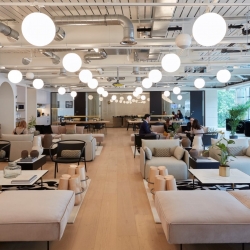To provide the best experiences, we use technologies like cookies to store and/or access device information. Consenting to these technologies will allow us to process data such as browsing behaviour or unique IDs on this site. Not consenting or withdrawing consent, may adversely affect certain features and functions.
The technical storage or access is strictly necessary for the legitimate purpose of enabling the use of a specific service explicitly requested by the subscriber or user, or for the sole purpose of carrying out the transmission of a communication over an electronic communications network.
The technical storage or access is necessary for the legitimate purpose of storing preferences that are not requested by the subscriber or user.
The technical storage or access that is used exclusively for statistical purposes.
The technical storage or access that is used exclusively for anonymous statistical purposes. Without a subpoena, voluntary compliance on the part of your Internet Service Provider, or additional records from a third party, information stored or retrieved for this purpose alone cannot usually be used to identify you.
The technical storage or access is required to create user profiles to send advertising, or to track the user on a website or across several websites for similar marketing purposes.
 With SME’s accounting for the employment of more than half of the UK’s workforce, supporting these businesses is of benefit to everyone while geopolitical events and the impact of the pandemic continue to cause economic uncertainty. Entrepreneurs and small businesses are vital for spurring on evolutions in our technology and creating new markets for services and products, therefore bringing about competition which in turn boosts productivity that benefits our own and other economies, helping them withstand and recover faster from financial downturns. (more…)
With SME’s accounting for the employment of more than half of the UK’s workforce, supporting these businesses is of benefit to everyone while geopolitical events and the impact of the pandemic continue to cause economic uncertainty. Entrepreneurs and small businesses are vital for spurring on evolutions in our technology and creating new markets for services and products, therefore bringing about competition which in turn boosts productivity that benefits our own and other economies, helping them withstand and recover faster from financial downturns. (more…)

































September 22, 2022
Getting working culture right is essential to hiring, supporting and retaining workers
by Richard Guy • Comment, Flexible working, Wellbeing, Workplace design